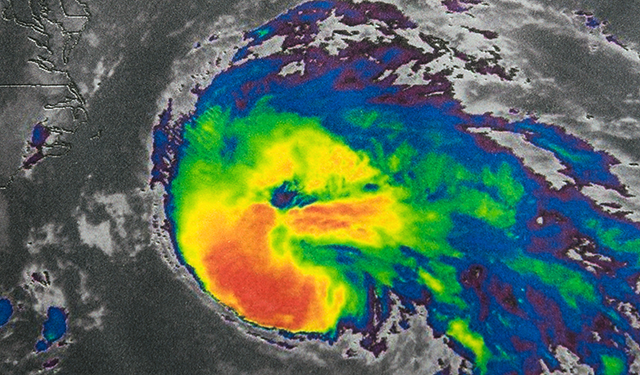Presidential Interdisciplinary Seed Grants
Developing new storm design criteria for natural hazards planning research and practice

Developing new storm design criteria for natural hazards planning research and practice

This project supports the development of safe and healthy communities and resilient infrastructure systems by beginning to modernize engineering storm design criteria. Due to climate change, increased urbanization, and the growing complexity of interconnected infrastructure systems, engineering and design criteria are not keeping pace with the rate of environmental change. More intense rain events are simply dumping more water in a shorter time period, and infrastructure systems are not built to handle and thus they fail, threatening public health and safety. Existing storm design criteria are based on an implicit or explicit assumption of a stationary climate. In a stationary environment, one can make accurate predictions about future events based on the scale and severity of past events. However, changes in some of the fundamental forces that shape weather events are leading to increased variability and intensity of extreme events and undermining assumptions of stationarity in design storm criteria. Infrastructure planners and designers need modernized and improved storm design criteria that account for these changes in the fundamental forces driving weather events. As an initial step in developing storm design criteria for the 21st Century, scientists and engineers need updated and modernized data sources and development tools that will serve as the foundation for the new criteria. Developing the data systems needed to prepare enhanced storm design criteria is a necessary step to enable communities to better prepare for future weather hazards and to build resilient infrastructure systems to protect communities’ safety, welfare, and prosperity. This project brings together a diverse group of UGA faculty to create a robust, innovative, and practical resource that will benefit communities and residents of Georgia and beyond and spur important new research and development projects long into the future.
Team Lead
Jay Pippin
Institute for Resilient Infrastructure Systems
jspippin@uga.edu
Team Members
Brian Bledsoe
School of Environmental, Civil, Agricultural, and Mechanical Engineering
Marshall Shepherd
Department of Geography
John Knox
Department of Geography
Pam Knox
Department of Crop and Soil Sciences
Lynne Seymour
Department of Statistics
Michelle Ritchie
Department of Health Policy and Management
Thomas Mote
Department of Geography
